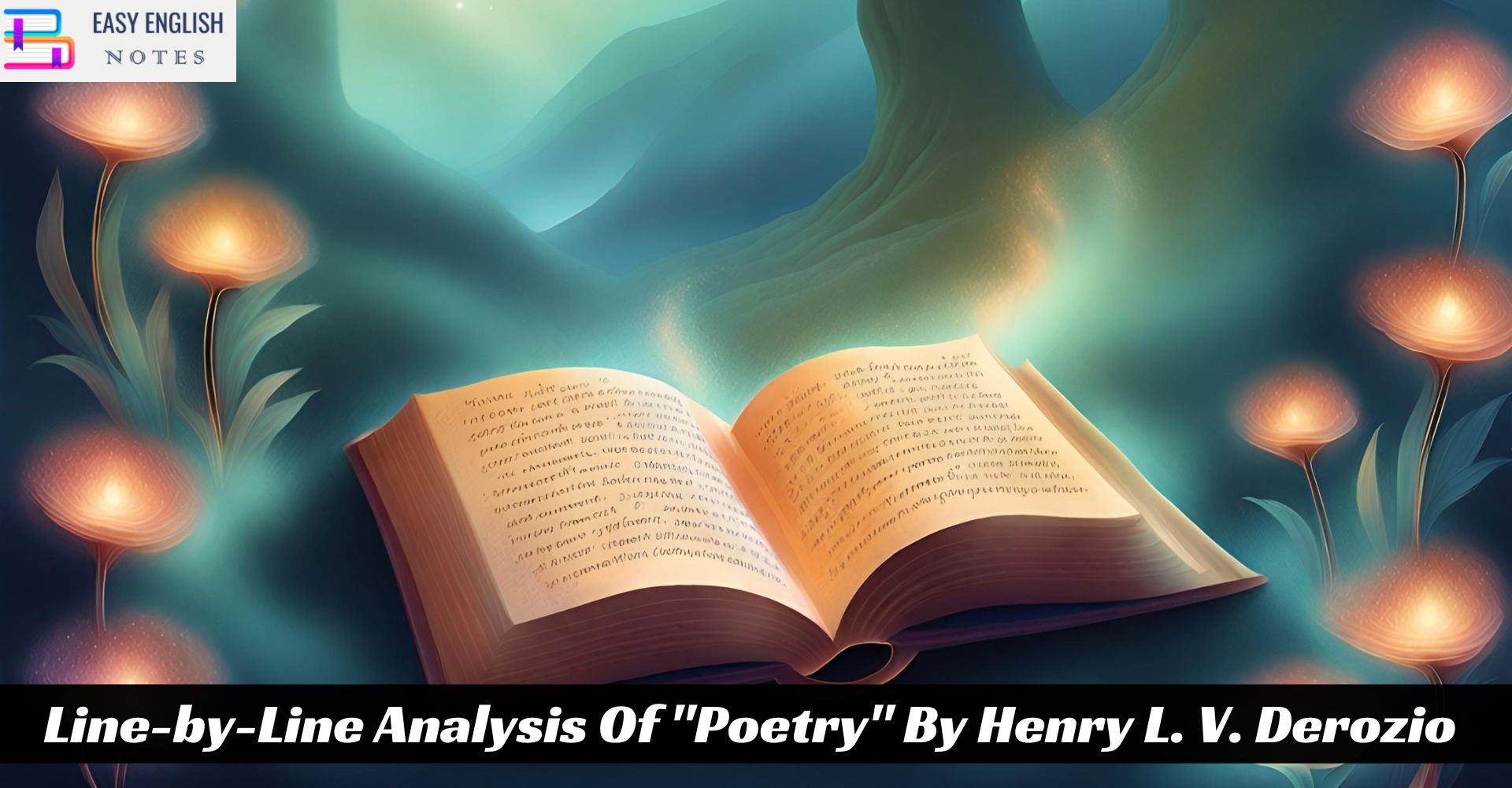Henry Louis Vivian Derozio’s “Poetry” stands as a profound reflection on the art of poetry itself. As a poet and educator of British-Indian heritage, Derozio occupies a unique place in the history of Indian English literature, often celebrated for his passionate verse and intellectual rigor. In “Poetry,” Derozio not only contemplates the nature of poetry but also champions its transformative potential. This work serves as a meditation on how poetry transcends mere words to become a source of inspiration, reflection, and connection.
Line-by-Line Analysis
Lines 1-2: The Invocation of Poetry
- The poem begins with an almost sacred invocation of poetry, suggesting an intimate, almost mystical relationship between the poet and his craft. By personifying poetry and appealing to it directly, Derozio elevates the art form to a divine status, underlining the reverence and awe with which he approaches this mode of expression.
Google Ads PPC Training Digital – membership area
An Exclusive Blood Sugar Balancing And Weight Loss
Lines 3-6: The Power of Poetry
- Here, Derozio elaborates on poetry’s capacity to move the human soul, employing vivid imagery and sensory language to depict the range of emotions poetry can evoke. This passage suggests that poetry has the unique ability to transcend the ordinary, offering glimpses into sublime experiences and profound truths that might otherwise remain inaccessible.
Lines 7-10: The Universal Appeal of Poetry
- Derozio asserts the universal appeal of poetry, emphasizing its ability to speak to common human experiences and emotions across cultures and epochs. This segment of the poem highlights the unifying power of poetry, its capacity to bridge divides, and foster a sense of shared humanity among its readers.
Lines 11-14: Poetry as a Reflection of Beauty
- The poet discusses poetry’s role in capturing and reflecting the world’s inherent beauty. By comparing poetry to a mirror and a repository of beauty, Derozio suggests that poetry not only preserves the ephemeral moments of beauty found in nature and life but also enables readers to see and appreciate these moments in new and meaningful ways.
Lines 15-18: The Timelessness of Poetry
- Reflecting on the enduring nature of poetry, Derozio explores its capacity to outlive its creators and resonate with future generations. This notion of timelessness speaks to the power of poetry to immortalize ideas, emotions, and moments, offering a kind of immortality to those it depicts and to the poets themselves.
Lines 19-22: The Inspirational Quality of Poetry
- Derozio highlights the inspirational quality of poetry, its ability to stir the imagination and inspire creative and philosophical pursuit. This segment underscores poetry’s role in motivating individuals to explore beyond the confines of their immediate reality, encouraging introspection, innovation, and the pursuit of truth.
Also Read :
- Compare Hamlet with Macbeth, Othello and other Tragedies
- “The Pardoner’s Tale” is the finest tale of Chaucer
- Prologue to Canterbury Tales – (Short Ques & Ans)
- Confessional Poetry – Definition & meaning
- Line By Line Explanation Of The Poem The Eve of St. Agnes
Lines 23-26: The Cathartic Effect of Poetry
- The poem then turns to the cathartic effect of poetry, acknowledging its capacity to provide comfort and emotional release. Derozio implies that poetry serves as a therapeutic outlet, allowing individuals to express and process their deepest emotions and experiences, thereby facilitating healing and emotional growth.
Lines 27-30: The Conclusion and Affirmation
- In its concluding lines, “Poetry” reaffirms the invaluable role of poetry in human culture. Derozio encapsulates the essence of poetry as a noble and elevating force, one that enriches the human experience by offering insight, beauty, and a profound sense of connection. This closing statement serves as a powerful testament to the enduring significance of poetry as an art form that transcends the boundaries of time and space.
Conclusion
Henry L. V. Derozio’s “Poetry” is a deeply introspective piece that celebrates the art form’s enduring power to inspire, unite, and elevate the human spirit. Through his nuanced exploration of poetry’s impact, Derozio conveys a multifaceted understanding of how poetry serves as a mirror to the beauty and complexity of the human experience. This expanded analysis reveals the layers of meaning Derozio weaves into his verses, highlighting his belief in poetry as a transcendent and essential element of human culture and expression. Through “Poetry,” Derozio leaves a lasting legacy, affirming the transformative power of poetic expression to illuminate, heal, and connect, transcending the boundaries of time and culture.











